Dates are a beloved and versatile fruit that has been enjoyed for centuries due to its sweet and rich flavor. Whether enjoyed on its own as a snack or used in various recipes, dates have become a staple in many households around the world. However, there are different varieties of dates available, with two popular options being dry dates and normal dates. In this article, we will explore the differences between dry dates and normal dates to help you make an informed decision about which one may be the best choice for you. Dry dates, also known as kharek or chuara, are simply regular dates that have undergone a drying process. This process involves removing the moisture from the fruit, which results in a darker appearance and a more concentrated flavor. Dry dates are often wrinkled in texture and have a chewier consistency compared to normal dates. The drying process also enhances the sweetness of the fruit, making them a popular choice for those with a sweet tooth. On the other hand, normal dates, also known as fresh dates or soft dates, are consumed in their natural state without undergoing any drying process. Normal dates are plump and moist with a softer texture compared to dry dates. They are typically lighter in color and have a milder sweetness compared to dry dates.
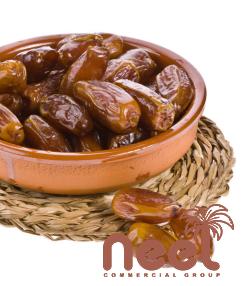
.
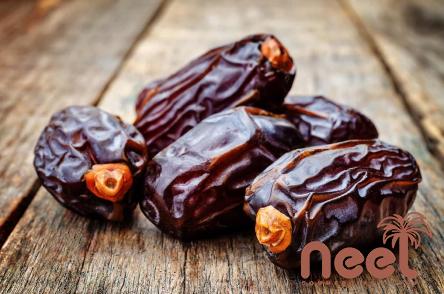 Normal dates are often consumed fresh or used in recipes that call for the natural sweetness and soft texture of the fruit. One of the key differences between dry dates and normal dates lies in their flavor profile. Dry dates have a more intense and concentrated sweetness compared to normal dates. The drying process removes the water content from the fruit, resulting in a higher sugar concentration. This makes dry dates a popular choice for those looking for a natural sweetener or a quick energy boost. On the other hand, normal dates have a milder sweetness with a slightly caramel-like flavor. The natural moisture content in normal dates gives them a juicy and tender texture that is well-loved by many. In terms of texture, dry dates are chewier and denser compared to normal dates. The drying process results in a firmer texture, which can be a preferred choice for those looking for a snack with more bite. Dry dates are often enjoyed on their own as a quick and satisfying snack, or they can be used in recipes that require a chewy texture. On the other hand, normal dates have a softer and juicier texture that makes them ideal for blending into smoothies, baking into desserts, or stuffing with nuts and seeds for a delicious treat. Nutritional content is another important factor to consider when choosing between dry dates and normal dates. Both varieties of dates are nutritious and packed with essential vitamins and minerals. However, there are some differences in their nutritional profiles. Dry dates are slightly higher in calories and sugar due to the drying process, but they also contain more fiber, which can aid in digestion and promote a feeling of fullness. Normal dates, on the other hand, are lower in calories and sugar, making them a good option for those looking to satisfy their sweet cravings without consuming too many calories. When it comes to versatility, both dry dates and normal dates can be used in a variety of ways in the kitchen.
Normal dates are often consumed fresh or used in recipes that call for the natural sweetness and soft texture of the fruit. One of the key differences between dry dates and normal dates lies in their flavor profile. Dry dates have a more intense and concentrated sweetness compared to normal dates. The drying process removes the water content from the fruit, resulting in a higher sugar concentration. This makes dry dates a popular choice for those looking for a natural sweetener or a quick energy boost. On the other hand, normal dates have a milder sweetness with a slightly caramel-like flavor. The natural moisture content in normal dates gives them a juicy and tender texture that is well-loved by many. In terms of texture, dry dates are chewier and denser compared to normal dates. The drying process results in a firmer texture, which can be a preferred choice for those looking for a snack with more bite. Dry dates are often enjoyed on their own as a quick and satisfying snack, or they can be used in recipes that require a chewy texture. On the other hand, normal dates have a softer and juicier texture that makes them ideal for blending into smoothies, baking into desserts, or stuffing with nuts and seeds for a delicious treat. Nutritional content is another important factor to consider when choosing between dry dates and normal dates. Both varieties of dates are nutritious and packed with essential vitamins and minerals. However, there are some differences in their nutritional profiles. Dry dates are slightly higher in calories and sugar due to the drying process, but they also contain more fiber, which can aid in digestion and promote a feeling of fullness. Normal dates, on the other hand, are lower in calories and sugar, making them a good option for those looking to satisfy their sweet cravings without consuming too many calories. When it comes to versatility, both dry dates and normal dates can be used in a variety of ways in the kitchen.
..
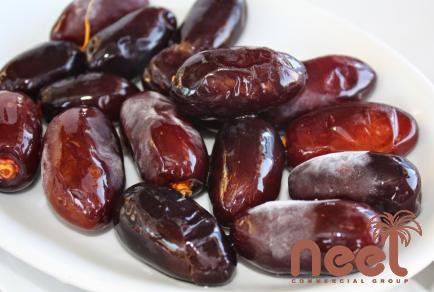 Dry dates are a popular choice for making date paste, date syrup, or adding to baked goods such as cookies, cakes, and energy bars. The chewy texture of dry dates also makes them a great snack on their own or when paired with nuts and cheese. Normal dates are commonly used in raw desserts, smoothies, and salads, as their softer texture blends well with other ingredients. They can also be stuffed with nut butter or dipped in chocolate for a decadent treat. In conclusion, both dry dates and normal dates offer their unique flavors, textures, and nutritional benefits. The choice between the two ultimately comes down to personal preference and how you plan to use them in your culinary creations. Whether you prefer the intense sweetness and chewy texture of dry dates or the milder sweetness and juicy texture of normal dates, incorporating dates into your diet can add a delicious and nutritious element to your meals. So, the next time you’re in the mood for a sweet and satisfying snack or looking to enhance your favorite recipes, consider adding dry dates or normal dates to your pantry and enjoy the many benefits that these versatile fruits have to offer. In addition to their culinary uses, both dry dates and normal dates have a long history of being used for their health benefits. Dates are known to be a good source of energy due to their natural sugar content, making them an excellent option for a quick and healthy snack. They are also packed with essential nutrients such as vitamins, minerals, and fiber, which can contribute to overall health and well-being. One of the key health benefits of dates is their high fiber content. Fiber is essential for digestive health as it helps regulate bowel movements, prevent constipation, and promote a healthy gut microbiome. Dry dates, in particular, are higher in fiber compared to normal dates, thanks to the removal of water during the drying process. Incorporating dates into your diet can help you meet your daily fiber needs and support a healthy digestive system.
Dry dates are a popular choice for making date paste, date syrup, or adding to baked goods such as cookies, cakes, and energy bars. The chewy texture of dry dates also makes them a great snack on their own or when paired with nuts and cheese. Normal dates are commonly used in raw desserts, smoothies, and salads, as their softer texture blends well with other ingredients. They can also be stuffed with nut butter or dipped in chocolate for a decadent treat. In conclusion, both dry dates and normal dates offer their unique flavors, textures, and nutritional benefits. The choice between the two ultimately comes down to personal preference and how you plan to use them in your culinary creations. Whether you prefer the intense sweetness and chewy texture of dry dates or the milder sweetness and juicy texture of normal dates, incorporating dates into your diet can add a delicious and nutritious element to your meals. So, the next time you’re in the mood for a sweet and satisfying snack or looking to enhance your favorite recipes, consider adding dry dates or normal dates to your pantry and enjoy the many benefits that these versatile fruits have to offer. In addition to their culinary uses, both dry dates and normal dates have a long history of being used for their health benefits. Dates are known to be a good source of energy due to their natural sugar content, making them an excellent option for a quick and healthy snack. They are also packed with essential nutrients such as vitamins, minerals, and fiber, which can contribute to overall health and well-being. One of the key health benefits of dates is their high fiber content. Fiber is essential for digestive health as it helps regulate bowel movements, prevent constipation, and promote a healthy gut microbiome. Dry dates, in particular, are higher in fiber compared to normal dates, thanks to the removal of water during the drying process. Incorporating dates into your diet can help you meet your daily fiber needs and support a healthy digestive system.
…
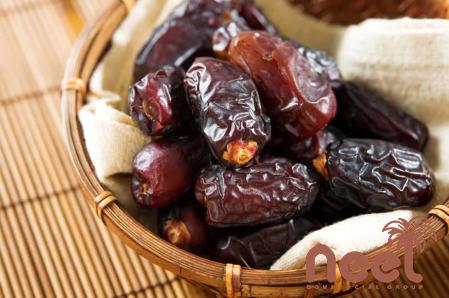 Dates are also a good source of natural antioxidants, which can help protect the body against free radicals and oxidative stress. These antioxidants, such as phenolic compounds, flavonoids, and carotenoids, have anti-inflammatory and anti-cancer properties that may help reduce the risk of chronic diseases. Including dates in your diet can provide a tasty way to boost your antioxidant intake and support overall health. Furthermore, dates are rich in essential vitamins and minerals that are important for maintaining optimal health. They are a good source of potassium, which is essential for heart health, blood pressure regulation, and muscle function. Dates also contain vitamin B6, which plays a key role in metabolism, brain function, and immune system support. Additionally, dates provide small amounts of other nutrients such as iron, magnesium, and vitamin K, which are important for various bodily functions. In traditional medicine, dates have been used for their medicinal properties for centuries. They are believed to have a range of health benefits, including improving digestion, boosting energy levels, and supporting overall vitality. Dates are often recommended as a natural remedy for ailments such as constipation, fatigue, and anemia due to their nutrient-dense composition. When it comes to choosing between dry dates and normal dates for their health benefits, both varieties offer valuable nutrients that can support a healthy lifestyle. Dry dates may be preferred for their higher fiber content, while normal dates provide a juicy and less intense sweetness that appeals to many palates. Incorporating a variety of dates into your diet can help you enjoy a diverse range of nutrients and flavors while reaping the many health benefits that these fruits have to offer. In conclusion, whether you prefer the chewy sweetness of dry dates or the juicy tenderness of normal dates, both varieties offer a delicious and nutritious addition to your diet. With their rich history, culinary versatility, and numerous health benefits, dates have earned their place as a beloved fruit enjoyed by people around the world. So, the next time you’re looking for a wholesome snack, natural sweetener, or tasty ingredient for your favorite recipes, consider reaching for some dry dates or normal dates and experience the unique flavors and benefits that these fruits have to offer.
Dates are also a good source of natural antioxidants, which can help protect the body against free radicals and oxidative stress. These antioxidants, such as phenolic compounds, flavonoids, and carotenoids, have anti-inflammatory and anti-cancer properties that may help reduce the risk of chronic diseases. Including dates in your diet can provide a tasty way to boost your antioxidant intake and support overall health. Furthermore, dates are rich in essential vitamins and minerals that are important for maintaining optimal health. They are a good source of potassium, which is essential for heart health, blood pressure regulation, and muscle function. Dates also contain vitamin B6, which plays a key role in metabolism, brain function, and immune system support. Additionally, dates provide small amounts of other nutrients such as iron, magnesium, and vitamin K, which are important for various bodily functions. In traditional medicine, dates have been used for their medicinal properties for centuries. They are believed to have a range of health benefits, including improving digestion, boosting energy levels, and supporting overall vitality. Dates are often recommended as a natural remedy for ailments such as constipation, fatigue, and anemia due to their nutrient-dense composition. When it comes to choosing between dry dates and normal dates for their health benefits, both varieties offer valuable nutrients that can support a healthy lifestyle. Dry dates may be preferred for their higher fiber content, while normal dates provide a juicy and less intense sweetness that appeals to many palates. Incorporating a variety of dates into your diet can help you enjoy a diverse range of nutrients and flavors while reaping the many health benefits that these fruits have to offer. In conclusion, whether you prefer the chewy sweetness of dry dates or the juicy tenderness of normal dates, both varieties offer a delicious and nutritious addition to your diet. With their rich history, culinary versatility, and numerous health benefits, dates have earned their place as a beloved fruit enjoyed by people around the world. So, the next time you’re looking for a wholesome snack, natural sweetener, or tasty ingredient for your favorite recipes, consider reaching for some dry dates or normal dates and experience the unique flavors and benefits that these fruits have to offer.
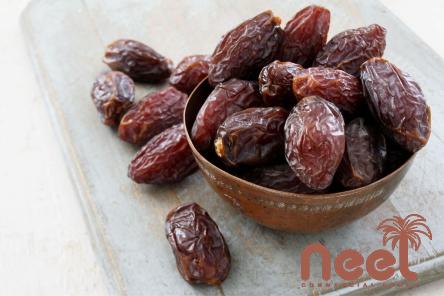

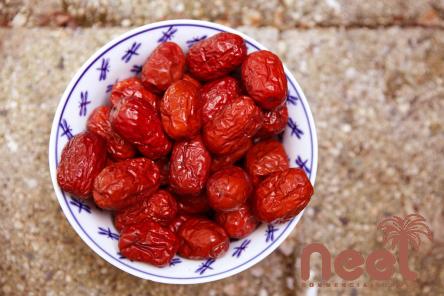
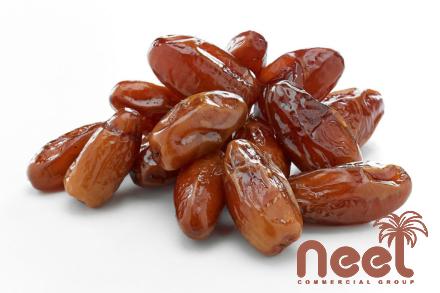


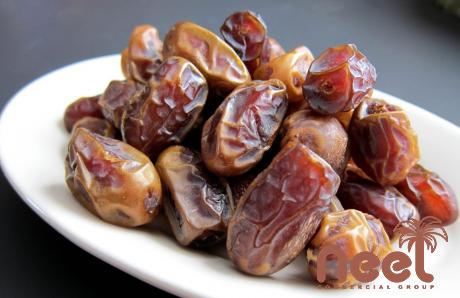
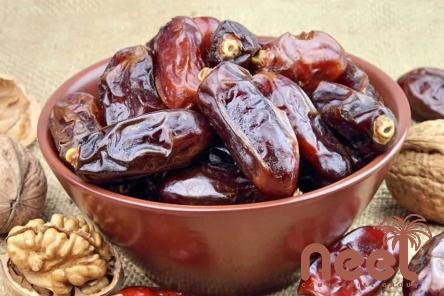

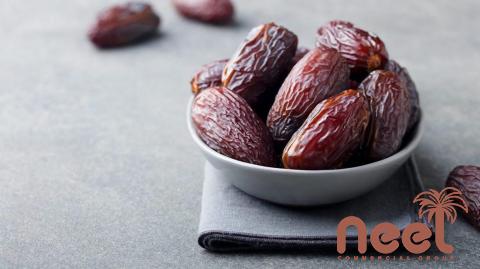
Your comment submitted.